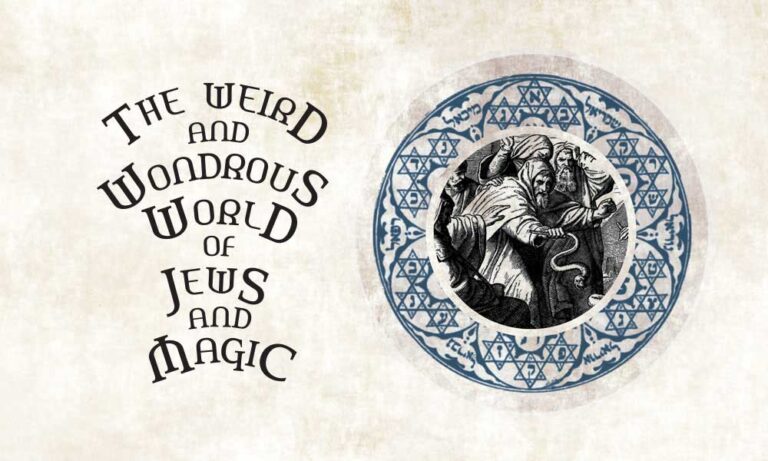Overall, my exploration of Jewish magic revealed a complex and multifaceted tradition that has been both revered and reviled throughout history. From ancient rituals like the Pulsa deNura to the mystical practices of Kabbalah, Jewish magic has played a significant role in shaping Jewish identity and spirituality. While some may view it as superstition or folklore, others see it as a vital component of Jewish spirituality that continues to inspire and intrigue to this day.
In Jewish tradition, magic and religion often intertwine, blurring the lines between what is considered acceptable and what is deemed dangerous. The use of spells, incantations, and rituals to achieve certain outcomes has been a part of Jewish folklore for centuries. The distinction between magic and religious practice is not always clear, with different perspectives shaping the interpretation of these actions.
The belief in supernatural beings such as demons and spirits is prevalent in Jewish texts and folklore. Methods for protecting oneself from these entities or expelling them involve the use of amulets, magical bowls, and the invocation of biblical names. The power of words and language, especially Hebrew and biblical names, is emphasized in Jewish magical practices.
Overall, Jewish magic reflects a complex relationship between the seen and unseen worlds, where the boundaries between the sacred and the profane are often blurred. The historical and cultural contexts in which these practices emerged have shaped the understanding and interpretation of magic within Jewish tradition.
The most famous dybbuk story, which inspired numerous plays and movies, is the tale of Leah, a young bride possessed by the spirit of her dead lover. The dybbuk claimed that Leah had promised to marry him in her previous life, and he refused to leave her body until that promise was fulfilled. Rabbis were called in to exorcise the dybbuk, but it resisted all attempts to be removed. In the end, the possessed Leah died, and the dybbuk was believed to have found a new host.
While stories of dybbuks and witches may seem like relics of the past, belief in magic and the supernatural continues to be a part of Jewish culture. From love spells to exorcisms, the realm of Jewish magic reflects a complex blend of tradition, superstition, and spiritual belief that has evolved over centuries.
The ancient wisdom of Jewish magic helps me bring order to chaos.” This resurgence of interest in Jewish magic highlights the enduring power of these ancient practices in the modern world.
The ancient wisdom of Jewish magic helps me bring order to chaos.
And perhaps it does more as well. A few weeks ago, I had lunch with my childhood friend Rachel and her new baby daughter. Rachel spent close to 15 years attempting to get pregnant. She tried every known fertility drug and in vitro fertilization treatment multiple times, to no avail. She prayed daily to become pregnant. Finally, early last September, she paid an Orthodox rabbi in Israel to perform a segulah (charm) that he claimed would cure her infertility. Following his advice, on each day of Sukkot, hoping that she was already pregnant, Rachel bit off and chewed the pitom or stem of an etrog in order to ensure a safe delivery. In late October she learned that she was pregnant, and this June, at age 49, she gave birth to a healthy baby. There is no way to know how or why Rachel finally got pregnant. But looking at her glowing face and that of her beautiful daughter, I realized that the actual cause didn’t matter. To me, it was magic.
Regenerate means to renew or restore something to its original state or condition. This term is often used in the context of biology to describe the process of regrowth or repair of damaged tissues or organs. It can also refer to the renewal of energy, spirit, or vitality in a person or thing. Overall, regeneration involves the process of revitalization and rejuvenation.
Source link

